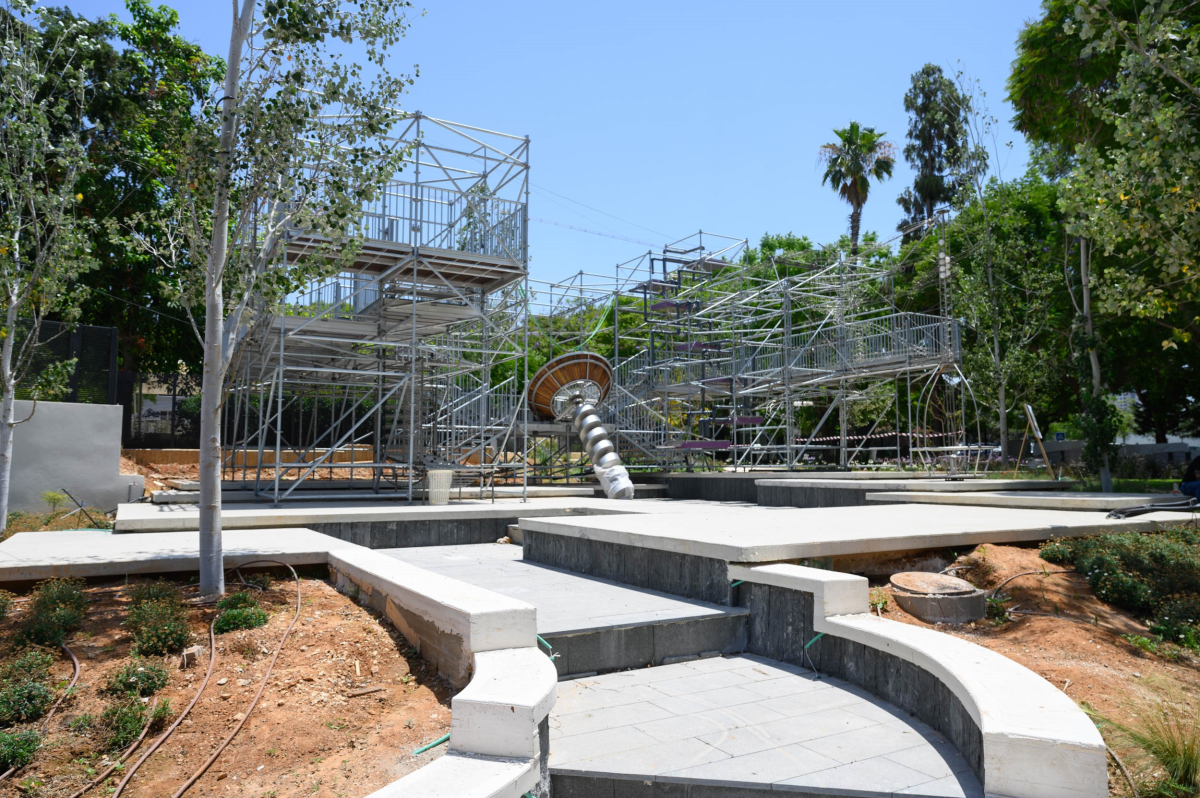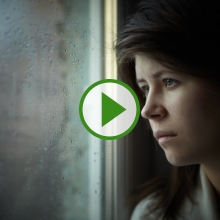Teaching outside the box
The Davidson Institute taps the potential of the Garden of Science’s new labs
Briefs

Three years ago, the Davidson Institute of Science Education—the educational arm of the Weizmann Institute of Science—embarked on an ambitious overhaul of its iconic open-air museum, the Clore Garden of Science. After much anticipation, its first phase of reopening took place last year—inviting visitors into the main building of the Clore Garden, which includes indoor science exhibits and state-of-theart interactive spaces. Boasting six new learning labs—the Culinary Lab, Multidisciplinary Lab, ART Lab, AI Media Lab, Makers Lab, and Open Source Lab—the new facility is primed to bring innovative and wide-ranging science activities to visitors of all ages. However, for this sophisticated structure to be utilized to its fullest potential, the Davidson Institute’s existing educational programs required some adjustment, and new content had to be created. Recognizing this need, Davidson CEO Dr. Liat Ben-David, Amir Schorr, the curator of the new Garden of Science, and Dr. Carmit Pion, Head of Davidson’s Instructional Design Unit, built a program that would familiarize the staff with everything the new labs at the Clore Garden have to offer, and train them in developing activities that would optimize these spaces. Thus, the Davidson “Hub” was born.
The three phases
The Hub offers Davidson educators a comprehensive threephase process for adapting their ideas in a way that best utilizes the Garden of Science. In the first phase, content developers take part in activities designed to illustrate the capabilities and range of the new learning laboratories. For example, the Hub put together an event in the Culinary Lab in which participants prepare a meal under the guidance of three experts: a chef, who approaches cuisine and nutrition through a culinary perspective; a Weizmann scientist, who focuses on the chemistry of food and sustainability; and a Davidson pedagogue representing the Hub, who employs the scientific method in food preparation and highlights the unique features of the Culinary Lab. The activity culminates with a meal, allowing participants to enjoy the fruits of their labor with a newfound appreciation for the relationship between chemistry, cuisine, and science education. The second phase of the Hub program focuses on professional development. Experts from eclectic fields hold workshops on everything from music and storytelling to marketing, instructional design, and the philosophy of science. Here, the Hub seeks to provide educators and content developers with tools and knowledge that complement their already finely tuned skillsets and help them find inspiration in unexpected places.
“We believe that the best content developers build their knowledge and skills in several areas, not just those that are directly related to their field,” Dr. Pion says. “The Garden of Science is designed in a way that blends the worlds of science, art, nature, and culture. We want our content developers to be able to do the same.” In the Hub’s third and final phase, participants, under the guidance of the Hub team—which includes Hub program manager Dr. Hadas Motro, freelance designers Dror Levy and Lior Ben-Guy, and Dr. Pion—use the skills and knowledge they have acquired to modify their original lesson plans or conceive of entirely new activities that take advantage of the cutting-edge resources offered at the Garden of Science. In this systematic way, the Hub is establishing a top-rate standard of content development, strengthening Davidson’s ability to offer state-of-the-art programs and positioning the Institute as a leader in science education.

The iconic Archimedes screw on the Clore Garden campus.
Transformative approach
Orit Kaufman, a program developer at the Davidson Institute whose work focuses on content for elementary school children, tapped into the Hub program to reimagine an activity she created on climate change. The result was a new and improved course for fifth graders called “Saving the Coral Reef,” which utilizes three of the Clore Garden’s indoor spaces: the lobby of the main building, the Multidisciplinary Lab, and the Open Source Lab. Rather than tackling the entire subject of climate change, in all its complexity, as the activity had originally been structured, the new interactive lesson focused on the intricate relationship between coral and algae in the marine ecosystem—through a friendly game of laser tag.
With its open space, long corridors, mind-bending optical illusions, and moveable furniture, the lobby served as a perfect playing field. Divided into three groups—Algae, Coral, and Predators—the students were tasked with mimicking the behavior of their assigned marine element. The Predators targeted the Algae, while the Coral’s job was to protect the Algae that, in turn, rewarded them with “sugar” and “oxygen”—represented by tokens. After the game, the students filed into the Open Source Lab for a second activity, in which they studied the composition of algae under state-of-the-art microscopes.
The final part of the reimagined course took place in the Multidisciplinary Lab, where participants learned about the effect of rising carbon levels on the marine ecosystem and discussed how they can lower their own carbon footprint. “Not only did I learn how to use the [indoor] spaces at the Garden of Science, but the Hub also honed my pedagogical skills and gave me a fresh new perspective oncontent development,” Kaufman says. “The program helped us think outside the box. The result was us designing an activity that used a combination of games, experiments, and lessons that our children will never forget.” Still in its first year, the Hub has already had a significant impact on Davidson programming, with 15 content developers participating in the initial launch of the program.
“Content developers can oftentimes get carried away, wanting to teach their students about everything all at once,”Kaufman adds. “The Hub helped us understand our audience better and taught us new skills that allowed us to create even better content. I’ve worked with Davidson for a long time, but I can honestly say that my experience with the Hub was singularly transformative.”








